le 27 février au 3 mars 2023
Upcoming Dates
- Weeks of 2/27 and 3/6: Artists in Residence (see below for more info)
- Tuesday, March 14: Field Trip to South Eugene High School for a music event. See below for more info. Please turn in forms!
- Friday, March 17: NO SCHOOL, Workload relief day
- Monday-Friday, March 27-April 3: NO SCHOOL, Spring Break!
OBOB
Congratulations to the fourth-grade student group who won OBOB at Charlemagne: Leo Kuhl, Remy Wallmark, Zeya Sroka, Franco Nese, and Rahim Nese. They will next compete at South Eugene High School on March 11.
What’s up! Quoi de neuf?
 Please send your child to school in proper footwear and a water-repellent jacket when the weather is threatening. Students will go out to recess unless the principal decides the weather prevents it. If your child is ill, or has had a fever or vomited within the previous 24 hours, please keep your child home. Please continue to follow current Covid rules as well. If your child will be absent, please email both teachers (kincaid_j@4j.lane.edu and hopper_s@4j.lane.edu) and please call in and leave a message on the school line (541) 790-7080 or for our secretary, Eliza Drummond, at drummond_e@4j.lane.edu.
Please send your child to school in proper footwear and a water-repellent jacket when the weather is threatening. Students will go out to recess unless the principal decides the weather prevents it. If your child is ill, or has had a fever or vomited within the previous 24 hours, please keep your child home. Please continue to follow current Covid rules as well. If your child will be absent, please email both teachers (kincaid_j@4j.lane.edu and hopper_s@4j.lane.edu) and please call in and leave a message on the school line (541) 790-7080 or for our secretary, Eliza Drummond, at drummond_e@4j.lane.edu.
Le français:

•We speak exclusively in French during French class.
•We write in complete sentences and can identify many parts of speech.
•We are learning world geography.
Most students have completed their geography packet, which we will keep at school for a bit to help us with our next social studies project.
Also, many students have completed their art project where they take a portion of a photo in a magazine (They select amongst photos of my choosing.), then they fill in the rest of the art. See the sample of the display and a few examples. They look magnificent.
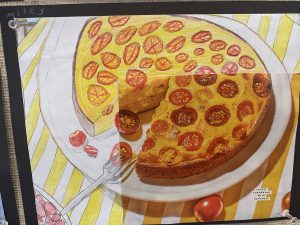
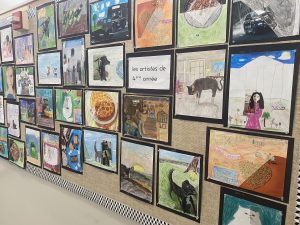
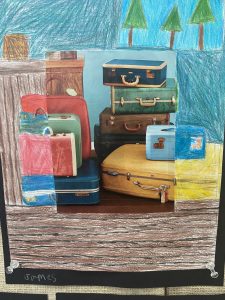
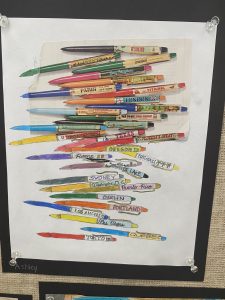
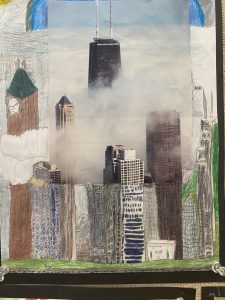
We began a study of the months of the year, the derivation of the names, and how they correspond to the order of the months, which we continue. Soon, we will be exploring line symmetry and radial symmetry, first in nature, then in maths. We’ll also begin time-telling in French, which is similar, but, of course, different!

Le cercle magique
We began our newest “J’observe….” writing activity called “Le cercle magique,” where students now have to write an eight-sentence essay. They also have to guess where the photo was taken.
No French homework this week! Since we had a short week and two shortened days last week, I determined that the kids weren’t ready for the vocabulary quiz. We’ll do that quiz later this week after we’ve worked with the words for a few more days.
Les sciences:
We began our new science unit, Energy (l’Énergie) with a discussion of what they already know about energy, in general. We’ll begin our experiments next week which will include lighting a bulb with a small bulb (une ampoule), a battery (une pile), and one or two electrical wires (un fil électrique).

Mme Shelli, English & Math
hopper_s@4j.lane.edu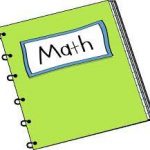
Math
Unit 7: Introducing Measurement Conversions
Key concepts of this unit are:
- A digit in one place represents ten times what it represents in the place to the right.
- Multiplication can be thought of as a comparison in contexts other than place value.
- Multiplicative comparison can be used to convert units of length, mass, volume, and time.
Unit 6: Decimals quiz was sent home Friday 2/24. Students should be able to convert decimals to fractions through hundredths place value. In addition, they should be able to order decimal fractions and should be able to solve problems with addition and subtraction of decimals.
Last week, we used place value and multiplication to help convert measurements in the metric system. This week we will convert measurements of length and volume using multiplication with in the U.S. Customary system. Students aren’t required to memorize 16 cups = 1 gallon, but instead will be using multiplication to solve problems such as “If 16 cups equal a gallon, how many cups in 5 gallons?”
Students have been practicing telling time on an analog clock for the last few weeks. They’ll be practicing in French soon. Please be sure your child can tell time on a clock with hands. Another big area of challenge for many students is elapsed time. Help your child learn to solve problems like, “If it’s 4:15 and you practice soccer for an hour and a half, what time will it be?”
One way to help make real world connections to measurement at home is to talk about measurement in cooking. Or, talk about the sizes of quarts, gallons and pints in your kitchen.
There is Math review homework this week.
English
Literature & Writing: Unit 2 Extreme Settings
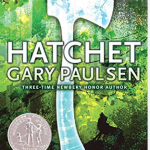 WordStudy: ur, ir, er spellings – continue from last week
WordStudy: ur, ir, er spellings – continue from last week
Reading/ Writing:
We will continue Hatchet by Gary Paulsen this week. Students will be looking at how Brian overcomes major challenges and depression as he hopes to be rescued after being lost in the Canadian wilderness.
As we continue the novel, we will talk about themes. As part of our study of “theme” and mountains, we will listen to excerpts of a short TED talk by Sophia Danenburg, American mountain climber best known as the first African American and the first black woman to climb to the summit of Mount Everest. Students will identify some central themes in her talk: Be curious & try new things and try, even if you fail.
Writing: Students will finish writing their survival narrative this week. They will revise their writing to include “thought shots” which are a character’s internal thoughts and an “exploded moment” which is a short paragraph written in slow motion and focuses on sensory details. By Friday, they will have revised and edited with a peer and will submit their writing to me for some feedback.
Information about this ELA unit can be found here.
Artist in Residence:
Charlemagne is excited to host our first artist in residence of the 22-23 school year. Students will experience the joy and passion of West African culture as they drum and dance to the dynamic poly-rhythms of Guinea. This team-building residency uses hands-on, educational games and exercises to give students a deeper understanding of the wealth and diversity of West African culture while teaching music, dance, and performance fundamentals. West African greetings, traditions, and customs are discussed to pique kids’ interest in new cultures, expand their worldviews, and increase their global awareness. They will be here during the weeks of Feb 27–March 10. We look forward to this great opportunity funded by Lane Arts Council. Here is a link about them: https://www.westafricanculturalarts.org/

Write a Comment
You must be logged in to post a comment.